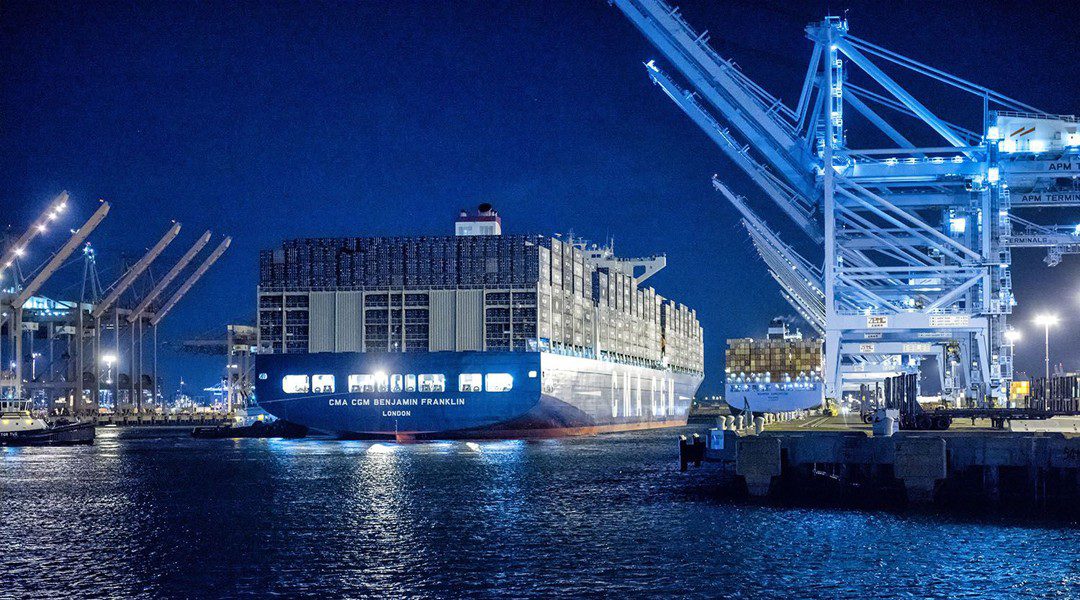 The Seafarer’s Charter is backed by DFDS Ferries, Condor Ferries, Brittany Ferries and Stena and will be formally launched alongside a similar initiative by the French government
The Seafarer’s Charter is backed by DFDS Ferries, Condor Ferries, Brittany Ferries and Stena and will be formally launched alongside a similar initiative by the French government
The UK government has launched a new Seafarers’ Charter with the aim of improving working conditions for seafarers
The Department for Transport (DfT) said the charter will guarantee seafarers “fair wages, proper rest periods and suitable training”. The charter builds on existing government action already taken and is part of a wider agenda for the maritime sector.
DfT said the wider nine-point plan is to “protect seafarers and boost employment protections, ensuring they’re paid and treated fairly – irrespective of flag or nationality” and was prompted by the government’s response to P&O Ferries’ decision to fire nearly 800 of its staff without consultation or notice last year. A decision DfT termed “appalling.”
Last year, P&O Ferries fired 786 of its employees without consulting unions. P&O replaced the fired crew with agency staff members, whose wages are as low as US$3 per hour.
The decision prompted the UK to launch an investigation into P&O’s business practices and the then Transport Secretary Grant Shapps writing to some EU nations to propose bilateral agreements to make routes between the countries ‘minimum wage corridors’ where nationals from either country must be paid an agreed minimum wage.
In March this year, the UK finalised the Seafarers’ Wages Act which received Royal Assent. Seafarers working on ships that call at UK ports at least 120 times a year will now be entitled to a wage rate that is at least equivalent to the UK national minimum wage for their work in the UK’s national waters.
DfT said the Seafarers’ Charter is backed by DFDS Ferries, Condor Ferries, Brittany Ferries and Stena and will be formally launched alongside a similar initiative by the French government when Maritime Minister Baroness Vere travels to Paris to meet her French counterpart Hervé Berville.
Maritime Minister Baroness Vere said, “Fair pay and protection against unlawful discrimination are the basic rights of any employee. Our seafarers deserve nothing less.
“I therefore expect companies across the maritime sector to sign up to this charter, letting their staff know they’re serious about protecting their rights and welfare. Alongside Minister Berville, we strengthen our commitment to protect those working in the Channel and we’ll continue collaborating with our international partners on this vital issue.”
Among the Seafarers’ Charter highlights are enforcements to make employers pay seafarers for overtime at a rate of a least 1.25 times the basic hourly rate, provide adequate training and development, allow seafarers to receive social security benefits including sickness benefit, family benefit and medical care.
Reacting to the charter, a spokesperson from the UK Chamber of Shipping said, “Protecting the rights and welfare of seafarers is an ambition shared by the entire shipping community.
“This voluntary charter will be another tool in this area alongside the extensive guidelines and best practice the industry has produced in collaboration with unions and other partners over many years. With the charter due for review after 12 months, it is important any unintended consequences or areas for improvement are identified and resolved as part of the review process.”
DfT added the government plans to create a statutory code of practice to deter employers from using threats of dismissal to pressurise employees into accepting new terms.






